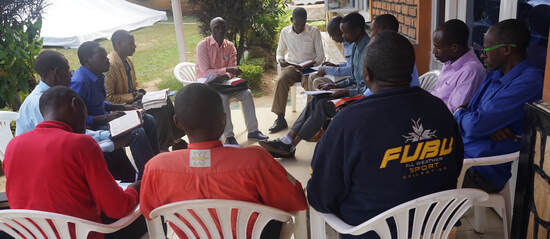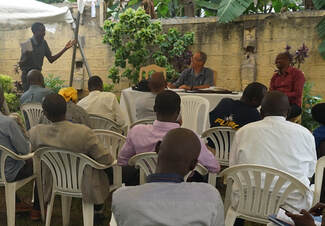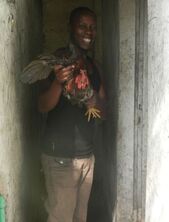 The pastors split into groups to engage and discuss 2 Thessalonians. They studied the text, African Bible Commentary notes, and the study notes in their Kinyarwanda Study Bible in order to gain a deeper understanding of the passages.
The pastors split into groups to engage and discuss 2 Thessalonians. They studied the text, African Bible Commentary notes, and the study notes in their Kinyarwanda Study Bible in order to gain a deeper understanding of the passages.
Just today, I have felt annoyed and frustrated that I have not been able to access the Internet. I sense a minor feeling of helplessness, as much of what I need to do is contingent upon having Internet connection. And this helplessness is minor compared to the feeling of powerlessness in not being able to provide for one’s family or have a safe place to live.
With this understanding of poverty in mind, it is important that when we seek to help others, we affirm people’s dignity and help them “contribute to the process of overcoming their poverty of being” (When Helping Hurts). If we are giving them everything they need, then there is still a sense of powerlessness as they are dependent upon us. Instead of a hand-out, let us give them a hand-up in order to use their own God-given gifts and resources to improve their situation. An example of a hand-up ministry is Theophile’s organization, Africa Hope Initiative (AHI). With the financial partnership of Christians in the US, AHI gives women, who were formerly prostitutes in order to provide for their families, microloans to start their own businesses. These women pay these loans back, and now they have power and a voice to change their situations, stepping out of fear, hopelessness, and desperation. In the context of Rwanda Challenge, we teach the Church leaders so they can pastor and lead the congregations. We are not leading the Rwandan churches; we are empowering the church leaders to use their gifts and abilities to lead and teach. I love being a small part of a ministry that is producing dignity and confidence within Rwandan pastors.
Alison
“Is not this the kind of fasting I have chosen: to loose the chains of injustice and untie the cords of the yoke, to set the oppressed free and break every yoke?” (Isaiah 58:6).


 RSS Feed
RSS Feed